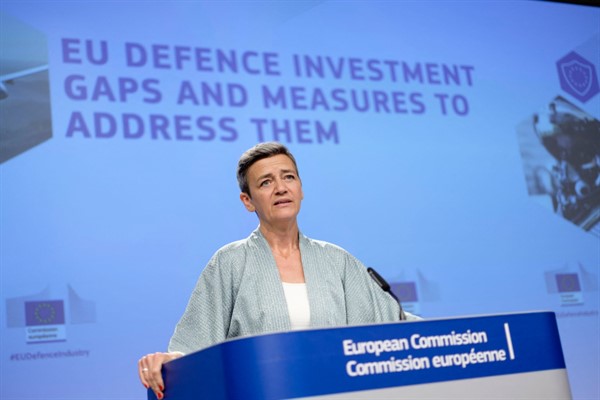The European Commission yesterday unveiled a watershed proposal to shore up the European Union’s ability to coordinate military decision-making among the bloc’s member states. The proposal to strengthen the union’s defense coordination powers takes on added significance against the backdrop of Turkey blocking Sweden’s and Finland’s bids to join NATO, underscoring the urgency of an upgraded EU military framework in the interim.
The commission’s proposal to analyze and coordinate defense spending among EU member states, including a collective defense acquisition framework similar to its joint vaccines procurement strategy, came in response to a request made by EU national leaders during March’s summit in Versailles. Unveiling the proposal yesterday, Commission President Ursula von der Leyen said that it isn’t enough for EU member countries to just spend more on defense, as they have committed to doing—at times at unprecedented levels—in the wake of Russia’s invasion of Ukraine. They also need to spend those funds more effectively. “We must make sure the money is spent in a coordinated way, that it addresses the capability gaps we obviously have,” she said. Margrethe Vestager, the EU’s commissioner for competition, put it more bluntly: “Defense funding is taxpayers’ money … these are proposals to enable member states to get more [military] value for money.”
Vestager pointed to several examples of duplication and inefficacy across the union that she traced to the lack of pan-European military coordination, including EU member states bidding against each other for the same military equipment, raising acquisition costs in the process. But while both Vestager and von der Leyen were forthright about the need to be more efficient with regard to European defense spending, they were also careful to allay the two main concerns historically expressed by Eastern European members and Washington about the EU becoming a military power: that it will morph into an EU army and seek to replace NATO. “We have national armies. We have national command structures … but that core can be even stronger if this is successful,” Vestager added. “And it’s obvious to everyone that a strengthened Europe is also a strengthened NATO.”

